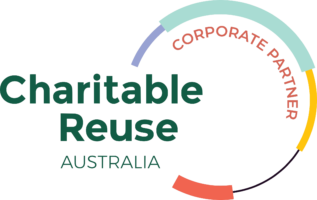Waste myth #6: Landfills bad, Recycling good

By Mike Ritchie, Director, MRA Consulting Group
Simple answers to complex problems are often wrong. I don’t know who said that, but it certainly applies to this myth.
We currently landfill about 22MT or 40% of the waste we generate in Australia.
Most of that occurs because the economics of waste and recycling are broken.
Since European settlement we have been solving our waste problems by digging a big hole just out of town and dumping everything we don’t want any more, into them. Cheaply and without much concern about long term consequences.
And as long as landfill remains cheap, it is also economically rational to landfill waste and resources.
If it costs more to separate (labour), collect, and recycle than it costs to collect and landfill, then most rational businesses and individuals will plan for the latter.
So, in broad terms we need to change that economic equation if we want to improve our recycling rates.
In particularly, if we want to achieve the 80% diversion from landfill target set by all States, local and federal governments, we have to start with the economics.
But that should never be interpreted as meaning the demise of landfills.
Landfills are not all bad. In fact, they are optimal for many materials which would otherwise pollute the environment (both our human and natural environments).
Think about asbestos for example. There is no viable way to destroy asbestos at present. We don’t want it in our economy, and we don’t want it illegally dumped.
It is comparatively cheap to entomb asbestos in landfill. It is also safe. It will cause no harm to anyone in landfill.
Contaminated soil falls into the same bucket. Best it is entombed in landfill than circulating in the environment.
So, landfill has a place as long as these streams exist and there are no processing solutions. It is the best available technology.
Flipping the coin to recycling for a moment, the same applies. Not all recycling is worth doing within the current market economy.
The utility of recycling needs to be investigated for individual streams from both an economic, resource depletion, climate change and community engagement perspective.
But some recycling fails the common-sense test. Better to just ban these products than trying to collect and recycle them.
The idea of sending an 8-tonne recycling truck up a street to collect coffee cups from households is bordering on insane.
Tweet
It will generate more emissions, higher costs and divert a thimble-full of waste from landfill.
The same is true for separating many mixed waste stream at source. Sending trucks to collect separated small streams makes no sense. It makes more sense to separate them at industrial scale in a dedicated processing facility somewhere else. Think kerbside recyclables, food waste, mixed commercial waste.
It also makes no sense to currently try to recycle asbestos, PFAS, contaminated soil. It makes little sense to drive a truck to remote locations to collect food waste when it can be put under a lemon tree.
So, there are real limits to recycling based on costs, environmental cost/benefits and net climate impacts. Landfill good, recycling better.
Mike Ritchie is the Managing Director at MRA Consulting Group.
This article has been published by the following media outlets:




